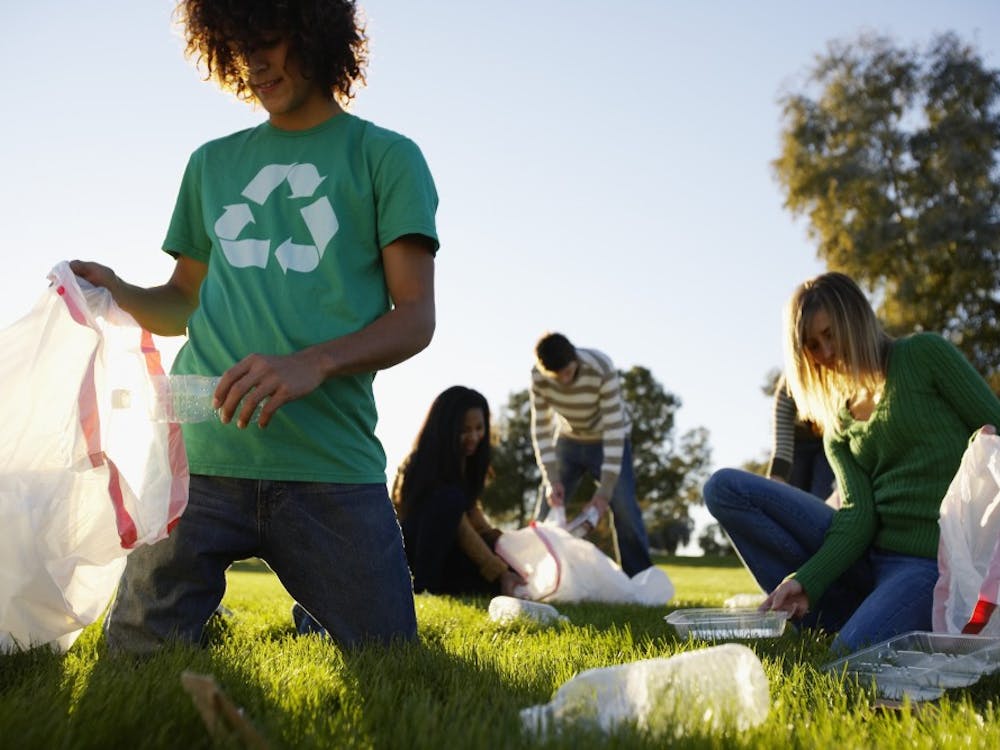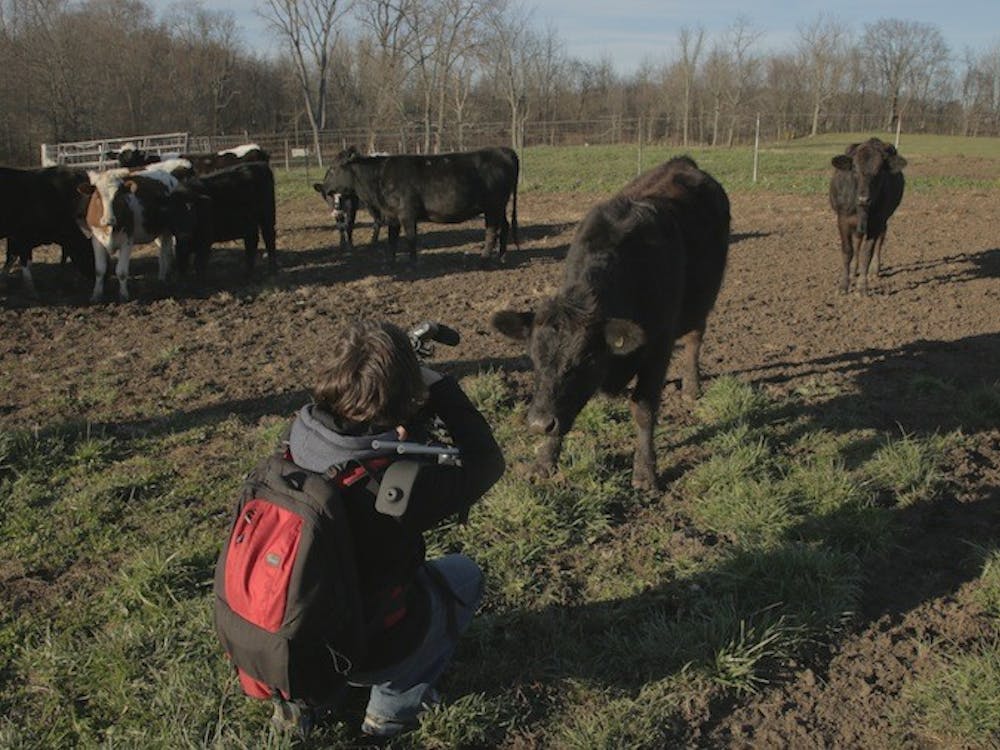As new and complex environmental issues rise throughout the world, it can be difficult and perhaps overwhelming to stay informed. From food foraging in your neighborhood to rebuilding local economies, the following book list suggested by students and professionals will inform, inspire and guide you toward a future in environmental advocacy.
HOW TO
1. “The Urban Homestead: Your Guide to Self-Sufficient Living in the Heart of the City” by Kelly Coyne and Erik Knutzen
Urban homesteaders, Erik and Kelly, share their knowledge of self-sufficiency while living in an urban community of Los Angeles by listing practical projects for urbanites to try. Whether you want to grow food on a balcony or clean your house without toxins, this handbook is an inspiring, light read that will make you think twice about the tedious job of farming and self-sufficiency anywhere.
Where to find it: Bracken Library (upon request), Barnes and Noble, Amazon
WATER
2. “The Big Thirst” by Charles Fisherman
From California’s continuing drought to Indiana’s damaging floods, water issues are making headlines around the globe. Unlike most precious resources, water cannot be used up; it can always be made clean again to drink. The underlying problem is that people don’t think about water enough to manage it well.
Author Charles Fishman tells an important story about people’s disconnection from water and the urgency to increase our water consciousness. Fishman writes, “Many civilizations have been crippled or destroyed by an inability to understand water or manage it. We have a huge advantage over the generations of people who have come before us, because we can understand water and we can use it smartly.”
Where to find it: Bracken Library (upon request), Barnes & Noble, Amazon
You might also like:
- “Your Water Footprint – The Shocking Facts About How Much Water We Use to Make Everyday Products,” by Stephen Leahy
- “Blue Future: Protecting Water for People and the Planet Forever” by Maude Barlow
COMMUNITIES
3. “Deep Economy – The Wealth of Communities and the Durable Future” by Bill McKibben
Author Bill McKibben promotes the idea of moving beyond “growth” as the economic ideal and pursuing prosperity in a more local direction. He envisions cities, suburbs, and regions producing more of their own food, generating more of their own energy, and creating more of their own culture and entertainment. In a New York Times book review by Lance Morrow, “McKibben focuses on questions about the ultimate purposes of economic activity and about how human beings might construct a future.” Whether you are an economics major eager to learn about the current flaws of mature economies or simply concerned about the environment and its future, this book is for you.
Where to find it: Bracken Library, Barnes & Noble, Amazon
You might also like:
- “The Dirty Life: On Farming, Food, and Love” by Kristin Kimball
FOOD
4. “Where Am I Eating – An Adventure Through the Global Food Economy” by Kelsey Timmerman
The next time you purchase food – packaged or not – look at the labels and ask yourself, “Where am I eating?” Muncie-based author Kelsey Timmerman set out on a global quest to meet the farmers and fisherman who grow and catch our food. Timmerman also worked alongside them: loading lobster boats in Nicaragua, splitting cocoa beans with a machete in Ivory Coast, and hauling tomatoes in Ohio.
Timmerman writes on his website, “The world’s population is growing exponentially but the number of farmers is declining. Farming is a livelihood and perhaps a lifestyle that we can’t live without.”
Where to find it: Bracken Library, Books-A-Million, Barnes & Noble, Indiebound, Amazon
You might also like:
- “Full Planet, Empty Plates” by Lester Brown
- “Plenty – One Man, One Woman, and a Raucous Year of Eating Locally” by Alisa Smith and J.B. MacKinnon
- “Animal, Vegetable, Miracle – A Year of Food Life” by Barbara Kingsolver
PSYCHOLOGY AND CLIMATE CHANGE
5. "Don't Even Think About It – Why Our Brains Are Wired to Ignore Climate Change" by George Marshall
Climate change is a serious issue that affects millions of people today. Many of us are aware of the issue, but rarely do we act on it or feel comfortable discussing it with others.
In his book review, Bill Nye said, “The science of climate change is easy: burning fossil fuels creates greenhouse gasses that are warming our world. George Marshall reminds us about the hard part: connecting the wellhead to the tailpipe in people's minds as soon as possible. Please read this book, and think about it. Let's get to work.”
Where to find it: Bracken Library (upon request), Barnes & Noble, Amazon, Audible.com
MANUFACTURING
6. “Overdressed: The Shockingly High Cost of Cheap Fashion” by Elizabeth L. Cline
When it comes to inexpensive, trendy fashion, stores like Forever 21, H&M and Target probably ring a bell. “The wastefulness encouraged by buying cheap and chasing the trends is obvious, but the hidden costs are even more galling,” reviewed Avis Cardella for The New York Times. Cline explains the consequences of trendy, cheap fashion and promotes the idea of “slow” fashion, which promotes mending clothes instead of trashing them.
Where to find it: Bracken Library, Barnes & Noble, Amazon
You might also like:
- “Where Am I Wearing – A Global Tour to the Countries, Factories and People That Make Our Clothes” by Kelsey Timmerman
- “Affluenza: The All-Consuming Epidemic” by John de Graaf
CAPITALISM VS. CLIMATE CHANGE
7. “This Changes Everything” by Naomi Klein
In “This Changes Everything,” Naomi Klein wants you to forget everything you know about global warming. The inconvenient truth is not a result of carbon emissions–it’s the never-ending ripple effect of capitalism. Klein argues that issues derived from climate change are directly caused by an economic system that is terribly failing.
Klein builds the case for how “reducing our greenhouse emissions is our best chance to simultaneously reduce gaping inequalities, re-imagine our broken democracies, and rebuild our gutted local economies.”
Where to find it: Bracken Library, Barnes & Noble, IndieBound, Simon & Schuster USA, Audiobook, Amazon
NATURE
8. "Last Child in the Woods" by Richard LouvThe staggering divide between children and the outdoors is omnipresent in today’s wired society. Author and child advocacy expert, Richard Louv, uses the term “nature-deficit” to define the lack of nature in the lives of “wired” children who are increasingly susceptible to childhood trends such as obesity, attention disorders and depression. Whether you are a concerned parent or educator, “Last Child in the Woods” is a book that will change the way you think about your future and the future of children.
Where to find it: Bracken Library, Barnes & Noble, IndieBound, Amazon
You might also like:
- “The Sixth Extinction: An Unnatural History” by Elizabeth Kolbert
- “The Soul of an Octopus” by Sy Montgomery
- “Of Orcas and Men: What Killer Whales Can Teach Us” by David Neiwert
- “Earth in Mind: On Education, Environment, and the Human Prospect” by David Orr
THE FUTURE
9. "Hot, Flat, and Crowded – Why We Need a Green Revolution – and How It Can Renew America" by Thomas L. Friedman
Pulitzer Prize-winning author Thomas L. Friedman proposes an alternative solution to the world’s climate crisis and competition for energy: Geo-Greenism. He is certain that Geo-Greenism, or the growing green revolution, will bring about both a sustainable environment and a sustainable America. Friedman argues that “it is not only what we need to save the planet from overheating; it is what we need to make America healthier, richer, more innovative, more productive, and more secure.” In a Boston Globe book review by Bill Williams, the book is “A compelling manifesto that deserves a wide reading, especially by members of Congress and candidates for President.”
Where to find it: Bracken Library, Barnes & Noble, Amazon
__________________________________________
This article is part of the Campus Green Guide, a free custom publication of Ball State Unified Media.














